|
After videos show police in Alberta handling non-compliance contradictorily, CityNews spoke with our Board Member Chad Haggerty, who says the incidents continue to show differential police response to mask-mandate incidents demonstrating, at best, a subconscious bias. Fair, transparent, and accountable police action is needed, regardless of race.
0 Comments
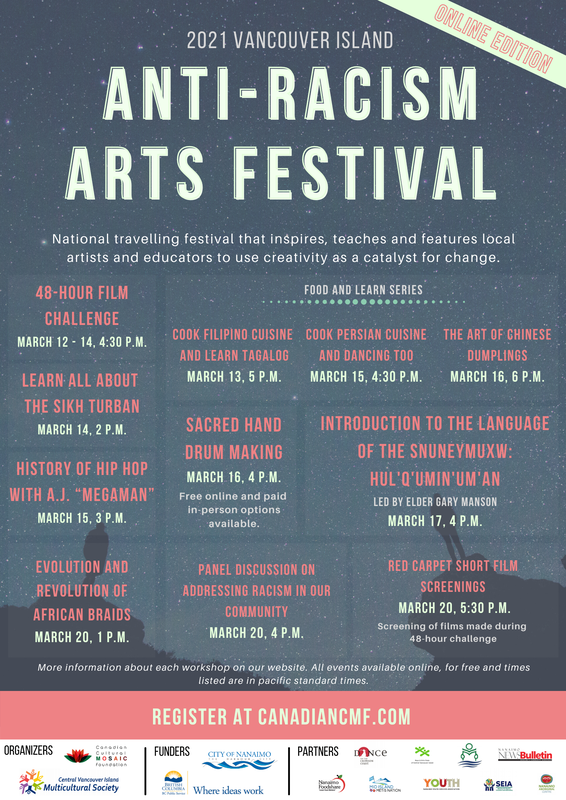 This spring the Central Vancouver Island Multicultural Society (CVIMS), in partnership with the Canadian Cultural Mosaic Foundation (CCMF) is pleased to be hosting the 2021 Anti-Racism Arts Festival. This festival has travelled across Canada since 2015. The festival hopes to bring together people from Nanaimo and surrounding areas to participate and attend the week-long festival, which features various art and educational activities free of charge. We anticipate this festival to inspire, teach and feature local artists to use creativity as a catalyst for change. To take part in the events, click on the registration link. 48-hour Film Challenge Led by Canadian Cultural Mosaic Foundation Teams of local amateur and professional filmmakers are given 48 hours to write, shoot, and edit short films with the themes of anti-racism. Teams are required to integrate a quote into their film that will be assigned to them. Teams will have online help from anti-racist filmmakers during the challenge in order to explore the topic of racism on a deeper level. No larger than four people a team will be permitted to enter the festival. Online orientations for the film competition will occur where teams will be coach in the rules of the competition as well as appropriate COVID protocols. Teams witnessed breaking any rules, including protocols, will be disqualified. Winners of the film challenge will receive prizes! Dates: March 12 - 14, 2021 Time: 4:30 p.m. PST Venue: Online (information will be provided once you've registered) Register for free Food and Learn Workshops We often fail to realize how much language influences our view of the world and people. Join one our sessions meant to expand your recipe collection and knowledge of another language. These workshops will keep you wanting to eat and learn more. Experience the Philippines: Cook Filipino Cuisine and Learn Tagalog Presenter: Diana Bieri has been an educator for the last fifteen years, living in several countries and working in multicultural environments. She is grateful for her traveling experiences, which allowed her to immerse in various cultures and especially try authentic cuisines. She tries to incorporate the world's lovely flavours into her home cooking; for example, adding heat to otherwise non-spicy dishes from the Philippines, her home country. She looks forward to sharing the afternoon with you, showing you how to cook two of the most common Filipino dishes: adobo and lumpiang shanghai. Date: Saturday, March 13, 2021 Time: 5 - 7 p.m. PST Venue: Online zoom Register for free: https://zoom.us/meeting/register/tJcuf-CqrDMjHtWlL3c2OIwSHjYJnaUyXMwW Experience Persia: Cook Persian Cuisine and We are Dancing too! Presenter: Cooking with Shirin! Local Nanaimo “Bees Knees Café” owner Shirin Younessian is bringing their March “Persian Cuisine” celebrations to the Festival! Learn a move or two of “Persian dance” and most important of all have a delicious supper at the end to share with family and loved ones. If this date does not work for you visit www.beesknees.com for more workshops being offered in March, funds being raised to support local community organizations. Register quickly as we have a limit of 20 attendees to help us to make sure everyone’s getting their questions answered. Date: Monday, March 15, 2021 Time: 4:30 - 6 p.m. PST Venue: Online zoom Register for free: https://zoom.us/meeting/register/tJEpf-qgrj0pGd1SAvGjVSSE3-qjUqiox4-- Experience China: The Art of Chinese Dumplings: History, Origin and Tradition Presenter: As the only members of her family living in Canada at the time, Churmy Fan and her parents made friends through food. Having lived in Canada for over 20 years now, Churmy enjoys rediscovering many traditional Chinese cuisines and adding her own flare to her cooking. Date: Thursday, March 18, 2021 Time: 6 - 7 p.m. PST Venue: Online Zoom Register for free: https://zoom.us/meeting/register/tJEpfu6oqDsvG923srLekquV4PgxZ6ssBzGH Explore the world of head coverings Focus on Sikh Turban Head coverings have been in existence long before the introduction of any religion and are worn by people who follow various religious traditions. Learn about the history of the Sikh Turban and its meaning. Presenter: Yuvraj Singh is a community leader, volunteer organizer, student researcher and Alberta youth parliamentarian who has been serving the Alberta community as a member of various community boards, engaging in student leadership at the U of C, a part of national youth development councils and by spearheading community projects such as interfaith programs, food drives and debate/public speaking mentorship with community stakeholders. Date: Sunday, March 14, 2021 Time: 2 - 3:30 p.m. PST Venue: Online Zoom Register for free: https://zoom.us/meeting/register/tJEqdOCsqj0vGt1IC-D7njgMIf_qOArdCavf History of Hip Hop with A.J. “MegaMan” Born in Kinshasa, Congo, A.J. is a member of Heavy Hittaz, Soulbotics Krew & Creator of Funkanometry, Minibots and Gigabots crew, A.J. “MegaMan” Kambere is a world-renown professional dancer, Battler & entertainer. With his talent in Hip Hop, Popping/Animation, Memphis Jookin, Stepping/Gumboot Dancing & Bopping, A.J. MegaMan has taught in every continent sharing his knowledge to other dancers. Join us as he shares his knowledge of the history of Hip Hop, and some of his incredible talents. Date: Monday, March 15, 2021 Time: 3 - 4:30 p.m. PST Venue: Online Zoom Register for free: https://zoom.us/meeting/register/tJMsd-Cvqz4uGtOz4bGtIDvQ2btIM7VsYxU2 This workshop is made possible by our partnership with Crimson Coast Society. https://www.crimsoncoastdance.com/ Sacred Hand Drum Making Workshop A drum is a medicine used as the heartbeat of Mother Earth. It is a tool for bringing out someone’s voice or songs and can be used as one beat with all the drums of the world for bringing out creative energy. Presenter: Donna Manson will guide us through the making of a sacred drum. Donna is a member of the Snuneymuxw First Nation and is married to Gary Manson. Date: Tuesday, March 16, 2021 Time: 4 p.m. PST Venue: Online Zoom Register online for free: https://zoom.us/meeting/register/tJcvc-2rrzIrHdU5anszgWboMa3-Kuh_l3Kl Introduction to the language of the Snuneymuxw: Hul'q'umin'um' The language of the Snuneymuxw is Island Hul'q'umin'um', a living language that expresses their worldview and way of life. Hul'q'umin'um' is one of the twenty-three Salishan languages of southwestern Canada and the northwestern United States. Presenter: Elder Gary Manson. “Uncle” Gary was born on the mouth of the Snuneymuxw River in 1948. He now lives 100 feet from where he was born. Married to Donna Manson, they have six children and eight grandchildren. Gary is a survivor of Residential School and deeply connected to culture and land. He has worked as an Elder for the past five years in healing circles, is a regular canoe journey participant and is glad to sit as an elder at Vancouver Island University. Date: Wednesday, March 17, 2021 Time: 4 p.m. PST Venue: Online Zoom Register for free: https://zoom.us/meeting/register/tJIqceCvrz0jH9NrgUOvY3VhwPtnspaI6GZJ Evolution and Revolution of African Braids The discovery of ancient stone paintings depicting women with cornrows in North Africa shows that braids date back thousands of years. A specific look could indicate the community that you belong to, your marital status or your age; and these hairstyles were passed down through the matriarchs of each generation. Understand the significance of African braids, how to appreciate them and watch a tutorial. Presenters: Wunmi Idowu is an accomplished dancer, choreographer, instructor, performer, producer and the Founder and Director of Woezo Africa Music & Dance Theatre Inc. She is also an educator and equity consultant with the focus of influencing change by using the transformative power of the arts. With a multidisciplinary approach that blends African music, dance, theatre and storytelling. Folu Ayodele-Daniels is the founder and Creative Director of The FAD Beauty Hub. Folu is a trained Healthcare Management Professional, but very passionate about the beauty industry. In 2016, she started the journey to creating a beauty Hub which shall be the effective center for all beauty activities as time goes on. Her goal is to give all clients their expected outcome upon every visit and ensure each person leaves the space high spirited, looking confident and more beautiful. Date: Saturday, March 20, 2021 Time: 2 p.m. PST Venue: Online Zoom Register for free: https://zoom.us/meeting/register/tJcucOqvqj8pHdyjkvSQU84keOM3SjAquNAz Panel Discussion on Addressing Racism in our Community (Panel TBC) Date: Saturday, March 20, 2021 Time: 4 - 5:30 p.m. PST Venue: Online Zoom Register for free: https://zoom.us/meeting/register/tJcsdeqqrTkjHdf3uTajI8UqnGEKY-f2lh4s Red Carpet Short Film Screenings On the night before the International Day for the Elimination of Racial Discrimination, join us for a red carpet gathering and screening from the film challenge. Prizes and winners of the film challenge will be rewarded by a local jury. Be sure to support your local filmmakers, and dress up! Date: Saturday, March 20, 2021 Time: 5:30 - 7 p.m. PST Venue: Online Zoom Register for free: https://zoom.us/meeting/register/tJcsdeqqrTkjHdf3uTajI8UqnGEKY-f2lh4s Organizers, Partners and Funders for festivalThis year's national festival was created by the Canadian Cultural Mosaic Foundation, in partnership with Central Vancouver Island Multicultural Society. Some local Vancouver Island community organizations have formed an alliance informally known as the Nanaimo Community Impact alliance. Members include Foodshare, CVIMS, Nanaimo Aboriginal Centre, Mid Island Metis nation, Society for Equity and Inclusion, Literacy Nanaimo, Boys and girls club of Central Vancouver Island, and Nanaimo Youth services association. This is the committee for the festival. Other partners include the Nanaimo Museum, Vancouver Island Regional Library, and VIU. All partners are contributing in kind through providing space, volunteers and shared responsibility for publicity. Re: 11 February 9, 2021 - Calgary Police Service Anti-Racism Action Committee Selected
Statement from Defund2Fund (copied from their release) The Calgary Police Service commitment to anti-racism has so far culminated in the creation of the CPS Anti-Racism Action Committee. Defund2Fund would like to congratulate the members selected to this committee: Dr. Fouzia Usman, Shuana Porter, Holly Wong, Rishi Nager, Kim Kakakaway, Giftii Girma, Adam Massiah, Eddie Richardson III, Dr. Darren Lund, Tyson Bankert, Adanech Sahilie, Walter MacDonald White Bear, Inez Ashworth, Lissy Snowden, and Stephen Shirt. Doing this work well means we must engage in it with the spirit of partnership. The many members of Defund2Fund remain hopeful that this committee will work to amplify and serve those most affected by systemic racism. While the present composition of this group is promising, the lack of transparency that surrounded the selection process continues to stoke fears from Calgarians who are reticent to trust the bureaucratic processes that exist within systemically racist institutions. This is notably seen in the silence from the CPS for 7 days following the initial statements sent out to applicants alerting them to the status of their application. Compounding on this, calls from the community went unanswered. While Defund2Fund was able to reach CPS and have a small dialogue in the days preceding the release of the committee’s composition, this dialogue came without concrete answers. This demonstrated a lack of preparation to be proactively transparent. To rebuild trust, the Calgary Police Service must dismantle traditional barriers that have been normalized through years of institutionalized discrimination. This would entail, but is not limited to:
Defund2Fund Coalition Defund YYC – Black Lives Matter YYC - Canadian Cultural Mosaic Foundation – YYC Black Town Hall – The United Black People’s Allyship Movement – The Black and Indigenous Alliance AB – The Colour Factor – RAAR - Rural Alberta Against Racism – Black People United – Blackfalds Against Racism – Vermillion Unites for Equality – Canadian Voices Against Racism - RDAR, Red Deer Against Racism - Project Calgary Courtney Walcott is a team member and works incredibly hard at everything he does. He has been volunteering with us for about a year now and led our CBE petition, K-12 hub and educational workshops. He is currently running for Ward 8 Councillor in Calgary. We love and support Courtney for all the amazing work he has done with us and beyond. Courtney is a high school teacher (in ward 8) by profession, and has been a very active advocate in anti-racism, equity-work, accessibility, environment, economy, thriving culture of Calgary and more. Honestly, if you're in Ward 8, there is no better candidate. Like his page, support his campaign, donate $5 if you can, and in October make sure you vote for him. Courtney Walcott is a teacher at Western Canada High School in the heart of Ward 8, a basketball coach, and a community advocate. As a Councillor, he will fight for a more equitable, sustainable, and prosperous Calgary. Find out more at courtneywalcott.com. 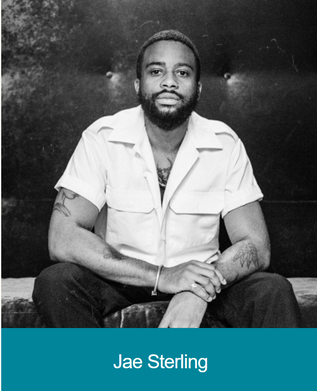 We're so thrilled to be working with Artist Jae Sterling on the #YouBelongInCHV Art Bench Program launching at The Crescent Moon Festival, Feb 12 - 14, 2021. The Crescent Moon Festival is a grassroots small-works art festival in Crescent Heights Village Calgary that pairs local artists with organizations that promote, support and celebrate diversity, inclusion and equality. This year, they will light up 10 art benches throughout the BIA for socially-distanced, self-guided tours all weekend. This event will be marketed as part of the city-wide Chinook Blast Festival in February. DONATIONS during February 2021: Be sure to check out and support Jae's work. Any donations we get during the month of February will be given directly to Jae for his phenomenal work. You Belong Bench Artist Jae Sterling Jae Sterling is a multidisciplinary artist and founding member of the SANSFUCCS collective. A musician at heart, he has also extended his art form over the years to include painting (acrylic & oil), digital design, mixed media, and writing. Through his early years in Kingston, Jamaica to the landscapes of North America, Jae spent the past few years developing his artistry by weaving his experiences growing up in Jamaica, South Florida, and coming into adulthood In Canada into all his projects. In 2020, Sterling embarked on an ambitious, year-long multimedia exhibition, Riding Horses With White Men (RHWWM). This exhibition is currently on a cross Canada. Jae was recently commissioned to paint a 3000 square foot mural, titled The Guide & Protector, in Calgary’s Chinatown, celebrating Black lives, making him the city’s first Black male solo muralist. Jae is working with the Canadian Cultural Mosaic Foundation on his You Belong Art Bench. 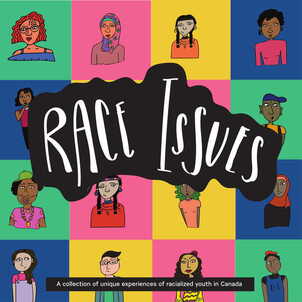 We're looking for four BIPOC Canadian Artists who draw to help us create the second edition of Race Issues (COVID-19 racial microaggressions theme). Each artist will get paid $500 for creating 10 comic memes. If you are interested, please email us with information about you, your work and portfolio and why you want to take part in this project. Finalized artists will be selected and contacted by end of February. Please use the form attached or email us at [email protected]. Artist fees come directly from our donations, therefore we can offer $500 per artist. Thank you to everyone for their interest. Two of our team members (Courtney Walcott and Iman Bukhari) recently had the opportunity to complete an online workshop in partnership with Alberta's Teacher's Association on how educators can talk to their students of race and racism in a classroom setting. The workshop discussed:
Did you miss our free Cultural Competency Virtual Fair during September 2020 for Alberta Culture Days? No problem. We recorded the sessions for this! This interactive fair will help folks of all ages gain insight into, appreciate and interact with a few different cultures and belief systems they might not normally have a chance to connect with.
This fair was funded in part by Government of Alberta for Culture Days 2020
Petition: Reallocate the Calgary Police Service Budget and Reinvest in Our Communities Now9/28/2020 The Defund2Fund Coalition is a diverse collection of Calgarians - made up of Black, Indigenous, People of Colour, Non-People of Colour and 2SLGBTQ+ organizations and individuals - who share a vision of a more resilient, more humane Calgary. We call on Calgary City Council to reallocate funding from the Calgary Police Service (CPS) budget to communities. Our coalition is seeking a 30% reduction to the CPS budget, to be reallocated throughout our communities, to rebuild trust, and to rectify systemic barriers in the financial capacity of Black, Indigenous, other racialized communities and 2SLGBTQ+ people. Reallocation of a portion of the CPS budget is supported by CPS. Chief Mark Neufeld told Calgary City Council that, should they reduce police responsibilities, “then we can certainly divert the dollars.” We couldn’t agree more. Here are the facts:
Please sign our petition and follow as we fight together for a more resilient Calgary. Defund2Fund Coalition
Defund YYC – Black Lives Matter YYC - Canadian Cultural Mosaic Foundation – YYC Black Town Hall – The United Black People’s Allyship Movement – The Black and Indigenous Alliance AB – The Colour Factor – RAAR - Rural Alberta Against Racism – Black People United – Blackfalds Against Racism – Vermillion Unites for Equality – Canadian Voices Against Racism - RDAR, Red Deer Against Racism - Project Calgary - VOICES YYC What is proactive policing?
While reactive and traditional policing is the act of responding to a crime after it’s been committed, proactive policing is a method of seeking out and deterring crime before it occurs through police presence and show of force. A commonly cited example of proactive policing is “stop-and-frisk”, which is the practice of detaining, questioning and/or searching any civilian on the street for weapons or other contraband. Proactive policing is also the practice of increasing police presence in certain areas to send a message to the public - we are here and we are watching you. Proactive policing relies on the assumption of potential guilt, which is contrary to one of our most basic democratic principles of justice -- that citizens are innocent until proven guilty. Does it work? It’s hard to say. It might, but not without significant consequences. A recent opinion piece on CNN from an American law enforcement analyst and retired FBI agent who mostly worked in New York City stated that “studies [on proactive policing] have provided evidence they can prevent or reduce crime.” Yet, an analysis by the Washington Post found that, while major felonies declined in New York City from 2002 through 2013 (when stop-and-frisk was implemented by the mayor), the reduction did not correspond to the increase in stops by police. According to Washington Post, “crime has continued to fall since a federal judge deemed the practice an unconstitutional violation of civil rights in 2013.” An analysis by the New York City Civil Liberties Union showed that, at the height of stop-and-frisk in NYC in 2011, over 685,000 citizens were stopped. Nearly 9 out of 10 stopped-and-frisked New Yorkers have been completely innocent. And racialized people continue to be the overwhelming target of this practice. What are the consequences in the Calgary context? A proactive policing approach in Calgary would see an increase in patrols in high-crime areas like downtown and the northeast -- where there is a high percentage of racialized and/or marginalized people, many of whom are criminalised and excluded from participation in high paying jobs. This will inevitably lead to an increase in racial profiling of innocent civilians, and erode any sense of trust and community belonging amongst those civilians. Increased police presence and force sends a clear message to these communities, and especially impressionable youth, that there is something wrong with them and they do not belong here. When people feel ostracized from the community, or that they don’t belong there, they lose any sense of responsibility to that community, including keeping it safe. Why would anyone be concerned with a community that is actively telling them they are unwelcome and under suspicion? This will also add to the already highly disproportionate numbers of Indigenous and Black people in correctional facilities. The initial instance of incarceration often leads to cyclical involvement in the justice system and extreme social inequality. Regardless of the work one has done to make up for a past crime, that criminal record will be a constant barrier to employment, housing, education and other necessities to lift oneself out of this cycle. Ongoing probation continues to send a message to criminalized people: we do not trust you. Add on increased police presence to this cycle and the message is clear: you are not to be trusted. So, why would people are told they are criminals trust the very people who keep telling them they are criminal? Why does crime happen in the first place? Trauma and poverty are inextricably linked. Trauma, especially during childhood, changes the way one’s brain is wired. According to brain science, without positive interventions, this causes the brain to continue exhibiting those fight-or-flight responses which greatly increases the likelihood of criminal behaviour as an individual ages. Poverty and unemployment are also strong indicators of incarceration rates. Racism and poverty are forms of trauma, as are negative interactions with law enforcement, especially when they are unwarranted. If increased policing results in increased trauma, it will inevitably lead to an increase in crime. It’s a self-fulfilling prophecy. What’s the alternative? We can effectively reduce and prevent crime without negative long-term consequences by addressing the root causes of crime such as poverty, unemployment, lack of belonging and trauma. It’s not only the more humane and just thing to do, it will actually lead to a more prosperous Calgary for all, and increased trust and engagement with police. A percentage of the police budget must be reallocated to social programs that address the root causes of crime through an anti-racist, trauma-informed lens, rather than continuing to increase funding to the never-ending cycle of the justice system and agencies that don’t actively address systemic and interpersonal racism on a daily and operational basis. This approach is proven to work: for example, Glasgow, Scotland's most populous city, lowered its murder rate by 50% through "smart law enforcement" combined with "programs targeted to youth, family health and other services in problem places." This may mean that the City of Calgary needs to look at new organizations, lead by people with lived experience of, and expertise in racism, for this movement to be effective. It will be a process, rather than an overnight phenomenon. But it is necessary for the health and wellbeing of all citizens in Calgary. We know that criminalizing people does not work in the long term and “proactive policing” sends a message that certain people and certain areas of the city are not to be trusted. Let’s move Calgary forward and use a modern approach to policing that builds respect and resilience into the community we all call home. His Worship Mayor Naheed Nenshi and The City of Calgary Councillors, Thank you for hosting the public hearing on systemic racism on July 7 - 9, 2020. Although discussing racism is often uncomfortable, painful and re-traumatizing, we greatly appreciate the attention paid to this critical conversation and are awaiting the next steps. Our team watched the recording of the hearing, in addition the livestream, and went through the written submissions to provide you with data based on the speakers’ stories. Please note these are initial estimates based on both the livestream and written submissions. In the graph below, the number represents the total number of people who stated their concerns during their presentation, as well as the percentage of times the concerns were mentioned. As illustrated in the graphs above, an overwhelming number of participants had concerns about systemic racism in the Calgary Police Service. There were also specific key issues mentioned within each broad concern, including:
Sincerely, Canadian Cultural Mosaic Foundation
Did you know that Calgary police officers shot and killed more people in 2018 than any other city in Canada? Alarmingly, this was also more than in either Chicago or New York, the two largest police departments in the US.
This is not just an American problem. This past week, Calgary City Council heard from over 150 Black, Indigenous and people of colour (BIPOC) who detailed countless incidents of abuse, mistreatment and discrimination at the hands of Calgary police. The trauma caused by law enforcement was undeniable on their faces and in their voices as they courageously shared their stories in hopes of meaningful change. Above the Law is a new documentary on CBC that examines three cases of police violence in Calgary. The film clearly illustrates how Calgary Police have both taken and ruined the lives of so many Calgarians. This has a wide-reaching impact on not just their loved ones, but their communities as well. We know that police brutality disproportionately impacts the BIPOC community. Yet, Calgary police are not mandated to collect race-based data which significantly limits their accountability. Their budget is nearly 10 times that of social services and affordable housing combined, despite the fact that these types of programs are proven to address the root causes of crime more effectively and humanely. It’s also more cost-effective, enabling your tax dollars to be reallocated to other important services. Of the 15,963 contacts with the public recorded by Calgary police in 2018:
Police are not trauma counsellors, social workers or mental health practitioners. We’re recommending The City puts out a request for proposals from the BIPOC community for culturally specific social services that can address the root causes of crime related to homelessness, mental health and poverty. A percentage of the Calgary police budget should be reallocated to the selected proposal(s). YOU can help make Calgary safer for not just the BIPOC community, but all Calgarians who’ve experienced police brutality. Share this documentary with the hashtag #DefundCPS to spread the word so that the defunding movement in Calgary is unignorable.
DefundCPS by Canadian Cultural Mosaic Foundation
In 2018, 72% of interactions with Calgary Police were related to disorder (unruly behaviour) and/or vulnerable persons. Another 16% were related to drug use. This means that almost 90% of interactions with Calgary Police are directly related to social issues such as homelessness, poverty, mental health challenges and substance use disorders – often a result of untreated trauma.
Police officers are trained to deal with violence and danger to the public. They are not trained to be trauma counsellors or social workers. Policing is not a preventative measure but rather a reaction to a crime that has already been committed. Black and Indigenous people are disproportionately targeted and impacted by the justice system, including policing. Many don’t feel safe calling police when they’re in danger because the police represent a greater threat to their safety, and possibly their lives. Read more:
Where did the phrase “defund the police” come from?
The concept of defunding police originated with Black activists and can be found as far back as the 1960s. It has gained momentum and credibility today as smartphone cameras and social media have exposed police brutality to a wider audience. Read more:
What does it mean?
Defunding police means reallocating a percentage of that funding to social services that address the root causes of crime, like education, mental health supports, affordable housing, youth programs, accessible transit and employment opportunities. The majority of Calgarians’ tax dollars go towards policing – the single largest line item in the City’s budget at $401 million – while affordable housing and social services receive a measly $42 million. Calgary Police have little accountability as City Council doesn’t require them to specify exactly what they are spending that money on. Police budgets should be capped and transparent so citizens know exactly what their tax dollars are spent on. Government should be involved in deciding what the money is spent on to increase accountability. Read more: Defunding the police in a Canadian context (E-Learning Resource)
Why is it important?
Policing is a foundational example of systemic racism in Canada, meaning that the policies, practices and procedures carried out by police lead to disproportionately negative outcomes for BIPOC. We cannot claim to be a free and equitable society when BIPOC are constantly at risk of brutalization at the hands of those they pay taxes to for protection. Experiencing mental illness, homelessness, poverty and trauma are not crimes. And, if we are truly innocent before proven guilty, using a counterfeit bill should not be a death sentence. Government-mandated collection of race-based data in policing is essential to ensure that police are held accountable for effective and equitable crime prevention. Read more:
Will defunding the police really work?
Yes. Alternative response services already exist in many parts of the world, like Oregon, California and the United Kingdom. Crises are responded to by trained, demilitarized professionals with expertise in de-escalation and compassion so there isn’t fear of further violence. Calgary already has several (currently underfunded) programs that provide successful and cost-effective alternatives to policing, such as:
Permanent supportive housing provided by Alpha House, CJHS and other agencies funded by the Calgary Homeless Foundation (CHF). CHF found that this type of housing decreases interactions with police by 72%,days spent in jail by 84% and court appearances by 59%. Did you know? The City of Edmonton has already voted to redirect $11 million of the police budget to community services.
How can I help advocate for my tax dollars to be reallocated away from police?
Support, participate and donate to defunding movements in your city. Email or call your local politicians to ask them to:
City of Calgary's Systemic Racism Public Consultation, What to Expect, Some Ideas and More6/29/2020
As part of Calgary’s commitment to anti-racism, The City of Calgary is holding a public consultation on systemic racism through a meeting of the Standing Policy Committee on Community and Protective Services which is scheduled to start on July 7 and 8, 2020.
How to register to present at the meeting: Registration is now over. Thank you for registering. How to view the agenda: Here it is. How to speak to the City Council committee: Here is a document to help you prepare for speaking to City Council. How to listen in, but not present: We recommend all Calgarians to watch the council meeting live on the day of. Sharing experiences of racism can be a really difficult and scary thing to do. Here are some tips that might help you stay grounded and present as you speak:
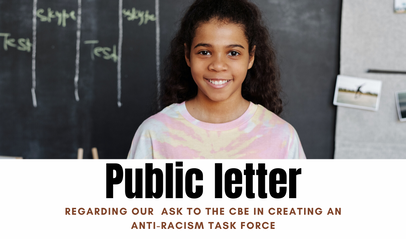 To my fellow Calgarians, My name is Courtney Walcott. I am a public high school teacher in Calgary. In collaboration with the Canadian Cultural Mosaic Foundation (CCMF), we started a petition on June 19, 2020, to ask the Calgary Board of Education (CBE) to create an Anti-Racism Task Force. In just a few days, we amassed over 7,000 signatures. The petition was featured on CBC News, Global News, Red FM and others. The success of this petition is due, in no small part, to the efforts and commitment of CCMF. They continue to strive for change in the education system through anti-racism work. CCMF released a study last year that illustrated Alberta teachers’ awareness of racism in their schools and the lack of tools to address it in their classrooms. Teachers indicated that they were fundamentally unprepared to create an inclusive curriculum due to a shortage of available resources. Six days after we released the petition, the CBE committed to doing the work necessary to create an equitable and anti-racist environment in schools, and created a Collaboration for Anti-Racism and Equity Support Advisory Council (CBE C.A.R.E.S.). This is a great first step — as long as the commitment is followed with action. And the teachers, students, parents and citizens who signed the petition have demanded that action in the form of accountable, data-driven and immediate change. While every call to action in our petition has not yet been satisfied — race-based data collection is required to effectively analyze and address systemic racism in our institutions — we have faith that the CBE will follow through on their promise to stakeholders. Thank you to everyone for adding their voice to this cause by signing and sharing the petition. While the petition is officially closing, we will continue to hold our institutions accountable for dismantling systemic racism. If you would like to get involved, the City of Calgary is holding a public forum on systemic racism on Tuesday, July 7, 2020 at 9:30 a.m., thanks to the hard work and determination of CCMF. Please share this information with your family and friends who have experienced racism so we can ensure their voices are heard and appropriate policy changes can be recommended. Follow CCMF on social media for further details on how you or your loved ones can participate: Facebook: @canadianculturalmosaicfoundation Twitter: @CanadianCMF Instagram: @canadiancmf Thank you, Courtney Walcott and the Canadian Cultural Mosaic Foundation
Historically, the education system has been used as a tool to propagate discriminatory and prejudiced ideologies. It is well known that the ideologies and policies of the past were based on discriminatory schools of thought regarding the differences between race, gender, and class. With this as a guiding understanding, we seek to put together a task force to specifically analyze which aspects of public-school policy continue to adversely impact our minority students. The foundation of this task force will be through the collection and analysis of race-based, gender-based, and economic-based data to determine and isolate problematic structures within the public education system. It will only be through the analysis of the policies in place, the history of their creation, and the impact on minority groups within this system that meaningful change can be made.
The task force will also look at methods of building school culture and developing the necessary school-based resources to impact the ongoing learning of students and staff. This includes, but is not limited to, the development of school-based equity committees, the ongoing process of learning about and the deconstruction of implicit bias, and the development of professional learning programs that can be facilitated to all CBE staff on the subject of anti-discriminatory work, as well as locally develop an anti-discrimination course, and a review of the K-12 Alberta curriculum to address necessary changes to reflect the diversity of the Alberta student body. Overall Strategy: To coordinate and strengthen anti-discriminatory work through data collection, analysis, and policy creation in accordance with the aim of disrupting systemic prejudice and discrimination. Goals
1. Build a comprehensive data set based on race, gender, and economic status.
4. An analysis of curriculum programs and the impact they have on student success
6. An analysis of course enrolment based on race, gender, and economic class in an effort to identify trends and possible systemic limitations to our distribution of equitable opportunities. 7. Research the origins of current educational practices to develop a historical analysis of potential discriminatory policies that may remain in our current system. 8. Analyze trends in hiring practices to identify potential bias in the hiring process Potential Task Force Members The task force would ideally be a combination of educators, policy makers, and analysts from the community. Potential collaborative opportunities exist through partnerships with our local Universities (Mount Royal University, University of Calgary) through their Public Policy, Education, History, and Sociology faculties and student base. This task force would need to be dedicated, and not run as a secondary duty of employees from the Calgary Board of Education. To complete this work in a timely, organized, comprehensive, and effective manner, this task force should be the sole focus of its members during its initial run. Too often is this the work of a committee meeting once a week for a year, yielding nothing. This work is challenging. It is disruptive. However, at its core, it is the work that will have long term effects that align with the goal of public education. Public education has the rare power to direct society towards a better future. This power cannot be taken for granted in light of daunting circumstances. Sacrifices and investments must be made into developing our future. Until we seek to understand the problem, we will never truly be able to fix it. We must do this work. Media contact/inquiries: Courtney Walcott, Social Studies & English Language Arts Teacher Western Canada High School [email protected]
June 10, 2020
His Worship Mayor Naheed Nenshi and The City of Calgary Councillors, The City of Calgary is home to an ethnically diverse population. According to Statistics Canada, in 2016, over 30 per cent of our population identified as a visible minority and about three per cent as Aboriginal. However, racist incidents, crimes, and constraints continue across the city. The City of Calgary municipal government has created a few policies and strategies to promote diversity and inclusion, but our great city needs concrete and ongoing anti-racism action. We want to help the City in coming up with solutions. The Canadian Cultural Mosaic Foundation (CCMF) has created a petition asking the City to hold a public consultation on systemic racism and discrimination. Within a week, the petition has amassed close to 70,000 signatures. We have also seen thousands of Calgarians rally in peaceful protests for Black Lives Matter and racial justice to show a societal fatigue of certain systemic occurrences and widespread desire to eradicate or improve conditions for Indigenous and racialized citizens, even during a pandemic. This consultation will allow Calgarians of all backgrounds to participate in the development of concrete solutions to improve the economic, social, cultural and political conditions of Calgary residents, particularly members of Indigenous and racialized communities. Calgary is a great city but we have the chance to build an even better one that is more inclusive, equitable and prosperous. CCMF is a not-for-profit organization of volunteers working to improve race relations in Calgary and Canada. We utilize education, technology and arts to create cultural understanding and mitigate racism. Being on the forefront of anti-racism advocacy and multiculturalism, our foundation often works with ethnic communities on projects. We implore the City of Calgary to hold a public consultation on systemic racism and discrimination and be part of this important movement. Our recommendations for the public consultation are as follows:
We want a city that is proactive, instead of reactive. While there are no magic or quick solutions to addressing systemic racism, we are confident that holding this public consultation will provide much-needed guidance to inform next steps on how the The City can play an active and vital role in improving life for all Calgarians. Thank you for your consideration and our organization would be happy to support this initiative in any way you need. Sincerely, Canadian Cultural Mosaic Foundation The City of Calgary is home to an ethnically diverse population. According to Statistics Canada, in 2016 over 30% of its population identified as a visible minority and about 3% as Aboriginal . However racist incidents and crimes continue across the city. The municipal government, The City of Calgary, has yet to tackle the discrimination that these population face. We understand The City has created a few policies and strategies to promote diversity and inclusion, but there is no concrete action taken. We want to help The City in coming up with solutions.
Please sign this petition to be part of the movement to tackle systemic racism and discrimination in Calgary. We ask The City to hold a public consultation on systemic racism and discrimination. This consultation will allow Calgarians of all backgrounds to participate in the development of concrete solutions to improve economic, social, cultural, and political conditions of Calgary residents, particularly members of Indigenous and racialized communities, and build a more inclusive equitable and prosperous city. Please sign and share! We get a lot of folks wanting to learn more about racism, but want to make sure the resource is legitimate and easy to understand. We have also seen a trend of shaming others for not knowing. We do not believe this is the way to creating positive changes. Here are some common terms to help you understand and become an ally. We use these definitions in our school presentations so they are easy to understand!
Race Before you understand racism, you need to understand race. But what is race? We sometimes hear people say race is a social construct, but what does that mean? ► Race has no basis in biological reality, therefore has no meaning independent of its social definitions. There is no gene or cluster of genes common to all blacks or all whites. Were race “real” in the genetic sense, racial classifications for individuals would remain constant across boundaries. Yet, a person who could be categorized as black in the United States might be considered white in Brazil or coloured in South Africa ►Although race is socially constructed, it significantly affects the lives of people of colour and Indigenous people, particularly in the West. ►The concept of race was created to establish a hierarchy in society. Here is a great video that further explains this. Racism We often hear politicians say racism is about ignorance. But it's not just about social attitudes. Instead racism is: ►A system in which one group of people exercises power over another on the basis of race. ►A set of beliefs, false assumptions, and actions based on an ideology of the inherent superiority of one racial group over another. ►Consists of policies and practices, rooted in established institutions, that result in the exclusion or advancement of specific groups of people. Ex - discriminatory laws, residential segregation, poor health care, inferior education, unequal economic opportunity and the exclusion and distortion of the perspectives of non-dominant Canadians. Racial Discrimination This is a term we don't hear very often. But it's incredibly important. And even more so, it's important to understand the difference between racism and racial discrimination: ►Racial discrimination can happen to anyone who is discriminated against based on their race and is usually an individual act. Racism is more persistent as it is not only an individual behaviour or act, but a way of thinking and is institutionalized/inherent in Canada. ►In Canada, anyone can experience racial discrimination but only people of colour and Indigenous people can experience racism. Privilege We hear the word privilege be thrown around often, especially white privilege, but many people don't understand how they themselves are privileged. ►Refers to gaining benefits, advantages, and rights by default at the expense of others, because one belongs to the perceived “us,” “normal” or “natural” state of the “mainstream” and/or dominant culture. ►Privilege is not visible to its holder; it is merely there, a part of the world, a way of life, simply the way things are. Here is a great exercise that explains white privilege. Microaggression Microaggression is a term used for brief and commonplace daily verbal, behavioural, or environmental indignities, whether intentional or unintentional, that communicate hostile, derogatory, or negative prejudicial slights and insults toward any group, particularly culturally marginalized groups. Here is a comic book we made about daily racial microaggressions. As well, here is a great video that further explains microaggressions. Bias Do you know we all have bias? We create them from a young age to navigate the world. But what is a bias? ►A subjective opinion, preference, prejudice or inclination, often formed without reasonable justification, that influences an individual’s or group’s ability to evaluate a particular situation objectively or accurately. ►You can be aware or unaware of it. Here is a great video on racial bias (note: there is a swear word in it, used once) Stereotypes and Generalizations We've heard many growing up, whether they are positive or negative, they contribute to a dysfunctional class system. ►A preconceived overgeneralization of a group of people, ascribing the same characteristics to all members of the group, regardless of their individual differences. ►Most of us fit into different categories and have a variety of interests. We might like watching sports but be non-athletic. We might like rap as well as classical music. But when we think about other people, particularly people who are a different race from us, we often have a harder time understanding that complexity. So we put people into categories and thus – stereotypes are formed. Intersectionality This term is thrown around a lot. It's essentially how oppressive systems are linked together ►The experience of the interconnected nature of identities, and the way they are embedded within existing systems such that they define how one is valued. ►In other words, the interconnected nature of all forms of oppression against particular groups. Now that you are aware of all this, how can you be an ally? It's important to understand the difference between and Ally and an Advocate. An Advocate: ►Supporting a cause that directly relates to you or affects you. ►Speaks out and takes action for change. An Ally: ►Listens, supports and advocates, but is not in the spotlight or the loudest voice. Stands with and not in front of. ►How to be an ally: ■Understand your privilege ■Listen and do your homework ■Speak up, not over ■Apologize when you make mistakes ■Ally is a VERB Want to learn more about racism?
|
Archives
January 2024
|
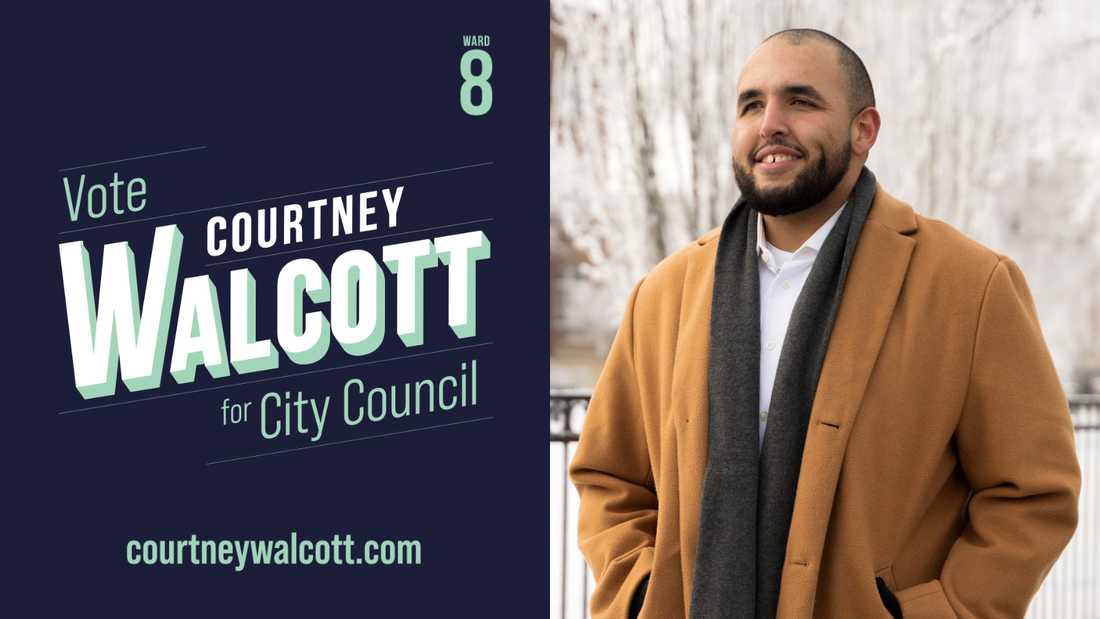
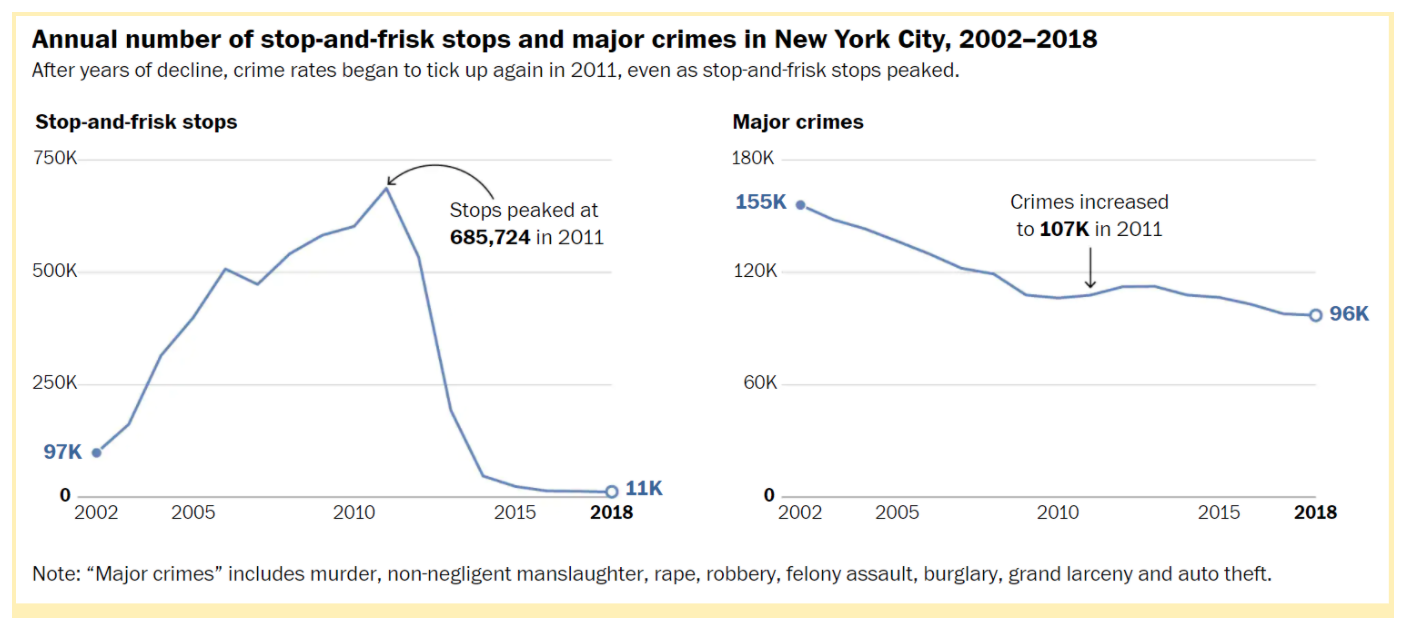
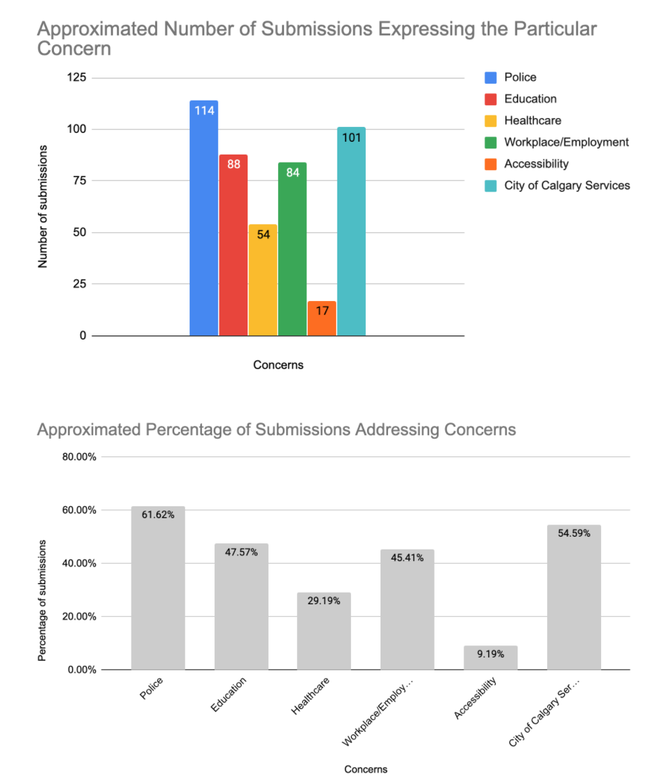
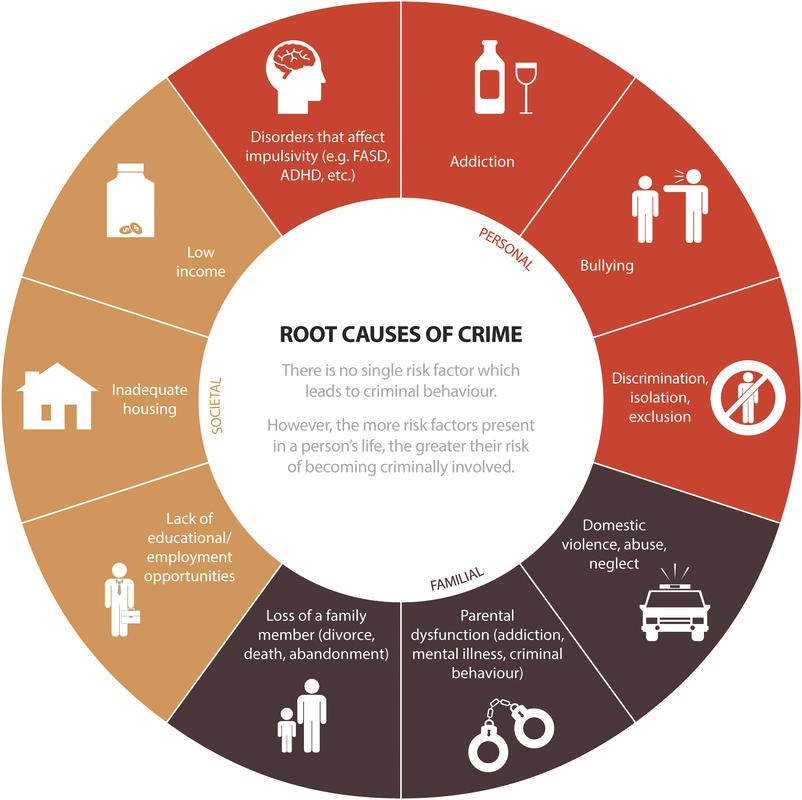
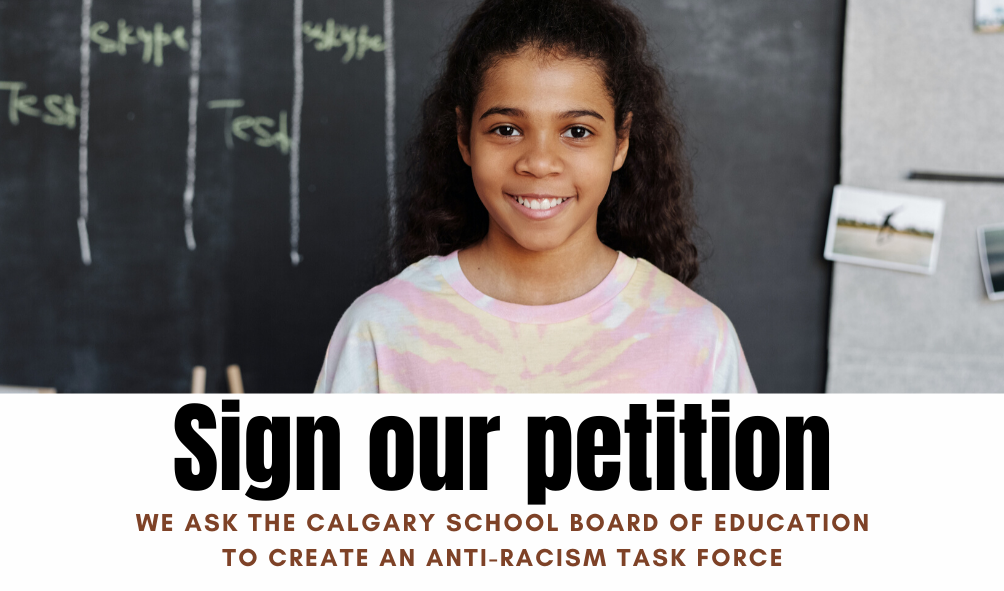
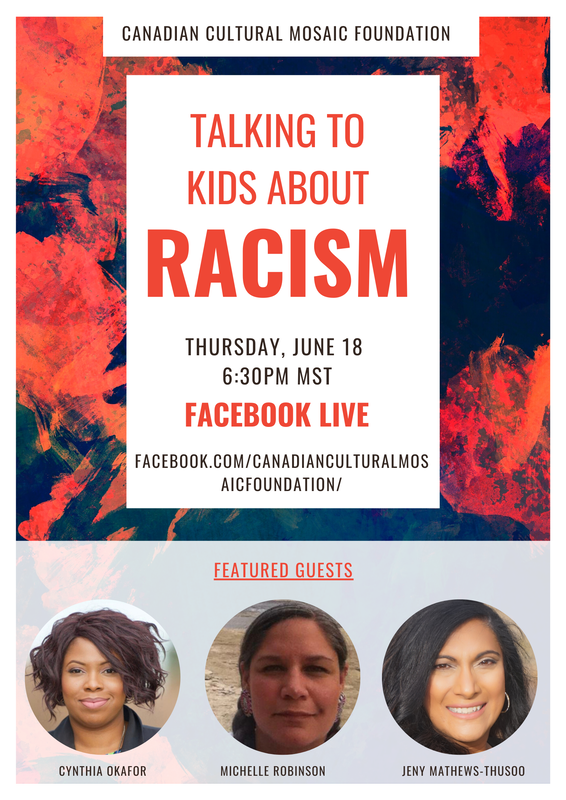
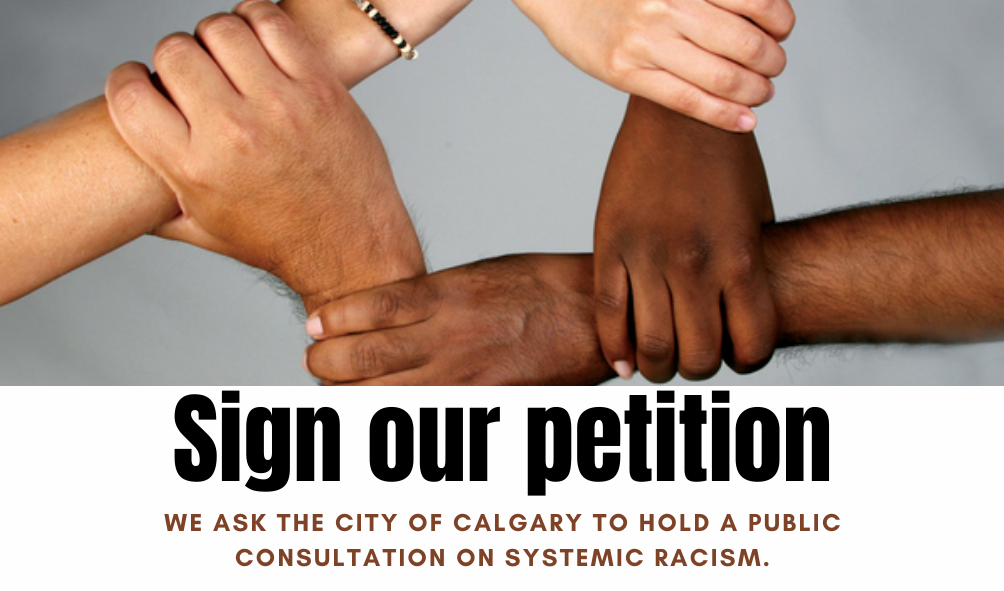
 RSS Feed
RSS Feed
